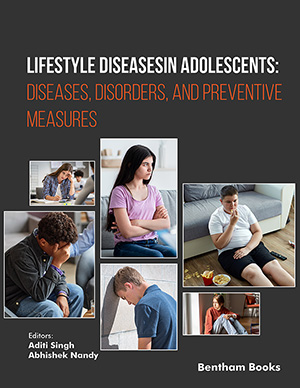Abstract
Introduction: Social Cognition (SC) is a complex construct that reflects a wide variety of implicit and explicit cognitive processes. Many neurocognitive domains are associated with SC and the Executive Function (EF) is the most representative one. We conducted a systematic review aiming at clarifying whether SC impairments are associated with dysfunction on EF in people with Alzheimer Disease (AD).
Methods: The search, based on the Preferred Reporting Items for Systematic Reviews and Meta- Analyses (PRISMA), was undertaken between January 2007 and December 2019 using Pubmed, SciELO, BIREME and Thomson Reuters Web of Science electronic databases. The keywords were SC, AD, EF, Neuropsychological functioning and Executive Disorder. Results: One hundred thirty-six articles were identified and fifteen were included. These studies are not in agreement about the extent of SC deficits in AD, mainly in the mild stage of the disease. EF deficits, specifically inhibition and the ability to manipulate verbal information, are associated with the impairment in SC in AD. SC decreases with the disease progression, a relationship explained by global cognition impairment and SC specific symptoms. Conclusion: SC impairment is associated with disease progression, mainly because of the decline in EF. Studies on SC components are unequal, contributing to a frequent generalization of Theory of Mind results, and often hampering the investigation of other components, mainly empathy. More precise knowledge about SC functioning in AD may contribute to a better understanding of the behavioral changes and interpersonal interactions.Keywords: Theory of mind, emotion recognition, empathy, cognition, executive functions, Alzheimer`s disease.
[http://dx.doi.org/10.1016/j.brainres.2006.01.002] [PMID: 16513097]
[http://dx.doi.org/10.1038/nrneurol.2015.229] [PMID: 26670297]
[http://dx.doi.org/10.1177/0891988717743587] [PMID: 29187026]
[http://dx.doi.org/10.3109/09540261.2013.763340] [PMID: 23611348]
[http://dx.doi.org/10.1097/WCO.0b013e32834cd42a] [PMID: 22002077]
[http://dx.doi.org/10.1016/S1364-6613(99)01399-6] [PMID: 10562726]
[http://dx.doi.org/10.1146/annurev.psych.60.110707.163514] [PMID: 18771388]
[http://dx.doi.org/10.1016/j.cortex.2017.05.022] [PMID: 28662418]
[http://dx.doi.org/10.1007/s12160-009-9097-4] [PMID: 19455377]
[http://dx.doi.org/10.1111/j.1469-7610.2006.01611.x] [PMID: 16492261]
[http://dx.doi.org/10.1080/02699931.2011.557291] [PMID: 21432634]
[http://dx.doi.org/10.1006/cogp.1999.0734] [PMID: 10945922]
[http://dx.doi.org/10.1146/annurev-psych-113011-143750] [PMID: 23020641]
[http://dx.doi.org/10.1007/s11065-016-9340-2] [PMID: 28116580]
[http://dx.doi.org/10.1177/0891988709332939] [PMID: 19321881]
[http://dx.doi.org/10.3389/fpsyg.2012.00331] [PMID: 23049516]
[http://dx.doi.org/10.1136/jnnp-2013-307098] [PMID: 24569686]
[http://dx.doi.org/10.1136/jnnp-2014-309445] [PMID: 25595152]
[http://dx.doi.org/10.1371/journal.pmed.1000097] [PMID: 19621072]
[http://dx.doi.org/10.3233/JAD-150467] [PMID: 26402016]
[http://dx.doi.org/10.3233/JAD-150686] [PMID: 26756325]
[http://dx.doi.org/10.1016/j.jalz.2013.12.021] [PMID: 24656839]
[http://dx.doi.org/10.1080/17470919.2015.1101014] [PMID: 26490734]
[http://dx.doi.org/10.1016/j.cortex.2014.02.018] [PMID: 24709075]
[http://dx.doi.org/10.1111/j.1748-6653.2012.02038.x] [PMID: 23088554]
[http://dx.doi.org/10.1093/brain/aws237] [PMID: 23065791]
[http://dx.doi.org/10.1080/13803395.2013.823911] [PMID: 23930667]
[http://dx.doi.org/10.1080/13825585.2016.1171291] [PMID: 27054957]
[http://dx.doi.org/10.1016/j.cortex.2011.08.003] [PMID: 21978867]
[http://dx.doi.org/10.1186/s13195-017-0287-1] [PMID: 28793933]
[http://dx.doi.org/10.1590/0004-282X20150009] [PMID: 26017202]
[http://dx.doi.org/10.1016/j.neuropsychologia.2007.03.013] [PMID: 17451756]
[http://dx.doi.org/10.1155/2018/4283427] [PMID: 30302338]
[http://dx.doi.org/10.1016/j.dcn.2014.01.002] [PMID: 24552989]
[http://dx.doi.org/10.1080/13607863.2011.575350] [PMID: 21722021]
[http://dx.doi.org/10.1111/j.1601-5215.2008.00315.x] [PMID: 26952025 ]





























